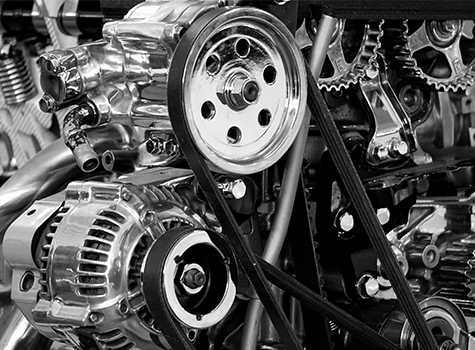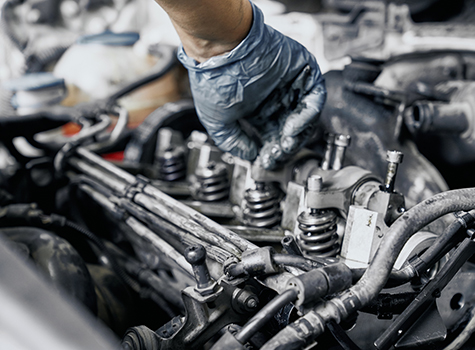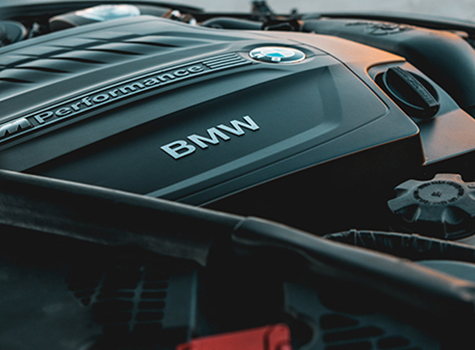The Ultimate Guide to BMW Engine Rebuilds: What Every Car Owner Needs to Know
Ultimate BMW Engine Rebuild Guide: Essential Knowledge for Owners
BMW engine rebuilds are crucial for maintaining the performance and longevity of your vehicle. A well-executed rebuild can breathe new life into your car, ensuring it continues to deliver the driving experience BMWs are known for. This guide will walk you through all you need to know about BMW engine rebuilds. It will cover identifying the signs that you need one and the benefits and processes involved.
Knowing when and why to opt for a BMW engine rebuild is essential for every car owner. With the right info and a good mechanic, you can ensure your BMW runs well for years. Let’s delve into the signs that indicate your BMW engine might need a rebuild.
Signs Your BMW Needs an Engine Rebuild
The first sign of needing a BMW engine rebuild is often a significant drop in performance. If your car is not accelerating as it should or if you notice it’s consuming more fuel, it might be time for a check-up. These symptoms can indicate that the engine components are wearing out.
Another red flag is odd engine noises. These include knocking or rattling sounds. These can be symptoms of bearing failure or timing chain issues. Both are common causes of engine failure in BMWs. Ignoring these signs can lead to catastrophic engine damage.
Oil leaks and excessive smoke from the exhaust are also tell-tale signs. They can show a breach in the engine’s integrity. This could be due to worn gaskets or piston issues. If you notice any of these problems, it’s advisable to contact a specialist for an inspection.
The Benefits of Rebuilding a BMW Engine
Rebuilding your BMW engine can significantly enhance its performance. Reconditioned engines often meet or beat the original specs. They ensure your BMW runs as smoothly as it did when new. This process involves replacing worn-out components with high-quality new ones.
Another benefit is the savings compared to buying a new car or engine. A complete engine rebuild is a cheap fix. It makes your car last longer. It costs less than a brand-new engine or car.
Lastly, rebuilding your engine is a more environmentally friendly option. It reduces waste and the need for new raw materials to manufacture a new engine. By choosing to rebuild, you’re not just saving money. You’re also helping the future be more sustainable.
Rebuilt vs. Remanufactured Engine: What’s the Difference?
The engine was rebuilt. It was taken apart and had some parts replaced. Then it was reassembled. The focus is on replacing only the parts that are worn out or failed. This option can be more budget-friendly since it doesn’t involve a complete overhaul.
In contrast, a remanufactured engine is completely taken apart, checked, and fixed. It is made to meet the original equipment manufacturer’s (OEM) specs. All parts are replaced or fixed. This is to make sure they meet strict quality standards. This option is closer to getting a brand-new engine and typically comes with a higher price tag.
You choose between a rebuild and a remanufacture based on your budget. Also, on your engine’s condition and your future car plans. Each option has its advantages. Remanufacturing offers a more thorough and often more reliable result.
What to Expect During a BMW Engine Rebuild Process

The engine rebuild process begins with a thorough inspection to identify all issues. A specialist will disassemble your engine. They will inspect each part and decide what needs fixing. This step is crucial for a successful rebuild.
Next, the cleaning of all engine parts takes place. This ensures that any debris or build-up that could hinder performance is removed. After cleaning, the rebuilding starts. Worn-out parts are replaced with new or refurbished ones. The new parts meet OEM specifications.
Finally, after reassembly, the engine undergoes testing to ensure it performs correctly. This may include adjustments to ensure everything runs smoothly. Once your engine passes all tests, it’s ready to be reinstalled in your vehicle.
Key Considerations Before You Rebuild Your BMW Engine
Before deciding on a rebuild, consider the age and condition of your vehicle. It’s important to ensure that the rest of your car is in good condition. Investing in a rebuild for an engine might not be cost-effective. The vehicle has significant wear and tear elsewhere.
Another consideration is the rebuild’s impact on your vehicle’s value. For classic or high-value BMWs, a rebuild can increase the car’s value. However, for more common models, a rebuild may not greatly hurt the car’s resale value.
Also, think about the downtime your vehicle will face. Engine rebuilds can take time, so you’ll need to plan for how you’ll manage without your car. This might involve renting a car or arranging alternative transportation.
Understanding the Costs of a BMW Engine Rebuild
The cost of a BMW engine rebuild can vary widely based on several factors. These include the extent of the rebuild, the model of your BMW, and the price of parts. You should expect to invest a lot. But, it’s often less than the cost of a new engine or vehicle.
It’s also wise to get quotes from several workshops to ensure you’re getting a fair price. Remember, the cheapest option might not always be the best. Quality and reliability should be your top priorities.
Lastly, consider the long-term savings a rebuild can offer. The upfront cost might be high. But, a rebuilt engine can extend your vehicle’s life and improve its performance. It might save you money on future repairs and fuel.
Finding a Qualified Mechanic for Your BMW Engine Rebuild

Choosing the right mechanic is crucial for a successful BMW engine rebuild. Look for a specialist with experience in BMW engines. They will have the needed knowledge and skills. An independent BMW specialist can offer high-quality service. They often do so at a lower cost than dealerships.
Check for certifications and reviews. They show the mechanic’s reliability and work quality. A good workshop should be clear about its process. It should also be willing to give references from past customers.
Ask about the rebuild process, warranty, and other concerns. Don’t hesitate to ask questions. A good mechanic will take the time to answer your questions. They will also provide clear explanations.
What Parts Are Typically Replaced During a Rebuild?
During a BMW engine rebuild, several key components are typically replaced. These include the timing chain, bearings, gaskets, and seals. These parts are critical for the engine. They often wear out in engines that need a rebuild.
Other parts might be replaced. They include the crankshaft, pistons, and camshaft. This depends on their condition. The oil pump and the cylinder head may be replaced or fixed. This will make the engine run smoothly.
Using high-quality replacement parts is essential for a successful rebuild. This ensures your rebuilt engine performs well and lasts for many more miles.
Warranty and Guarantees on Rebuilt BMW Engines
Warranties and guarantees are important. Consider them when getting your BMW engine rebuilt. A good mechanic or workshop should offer a warranty on their work. It gives peace of mind and guards against future issues.
The length and coverage of the warranty can vary, so it’s important to understand the terms. Some warranties may cover all parts and labour, while others might have limitations. Be sure to ask about the warranty details before proceeding with the rebuild.
Having a warranty can also indicate the quality of the rebuild. A workshop confident in its work is more likely to offer a comprehensive warranty.
Extending the Life of Your Rebuilt BMW Engine
After your BMW engine has been rebuilt, taking steps to extend its life is crucial. Regular maintenance is key to ensuring your engine runs smoothly for as long as possible. Follow the manufacturer’s servicing schedule, and don’t skip oil changes. Using high-quality oil and filters can significantly impact your engine’s longevity.
Pay attention to your BMW’s performance and any unusual signs. Early detection of issues is key. It can stop small problems from becoming big ones. These issues include strange noises and changes in performance. Address these signs soon. A mechanic can save you time and money.
Another tip is to drive your BMW responsibly. Avoiding fast starts. And, keeping a steady speed. These things can reduce engine wear. This driving style lengthens your engine’s life. It also improves fuel efficiency.
Conclusion
Rebuilding a BMW engine can be a wise investment. It will revitalize your vehicle and boost its performance. Understanding the signs that show a need for a rebuild is crucial for any BMW owner. They must also know the benefits and the process. Remember, picking the right specialist is key. Also, using high-quality parts in the rebuild is crucial for success.
READ MORE